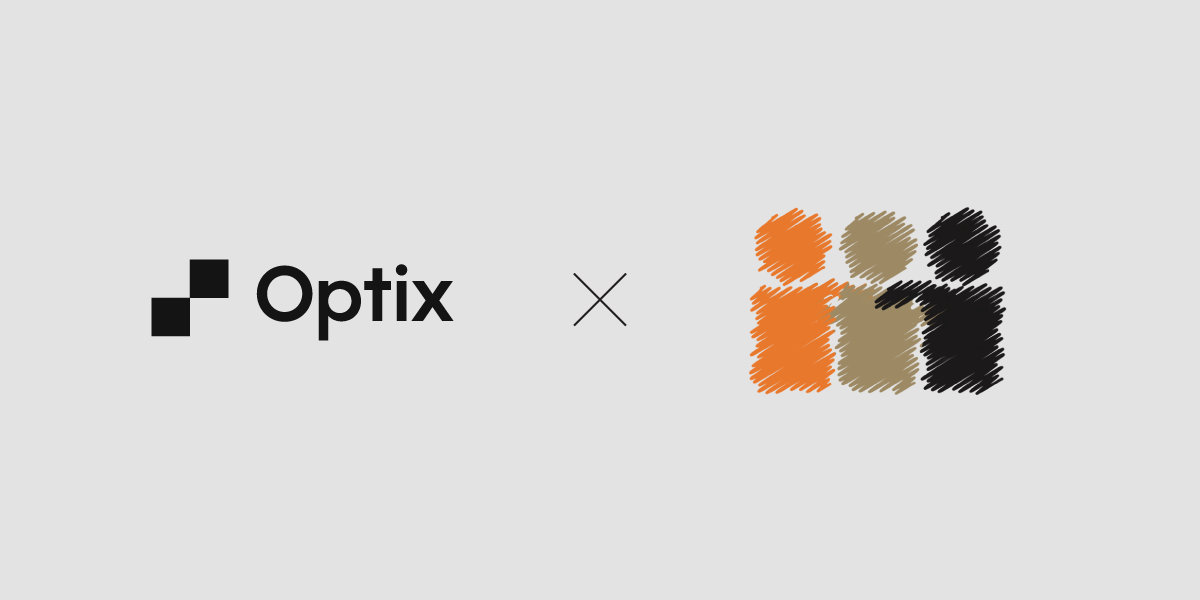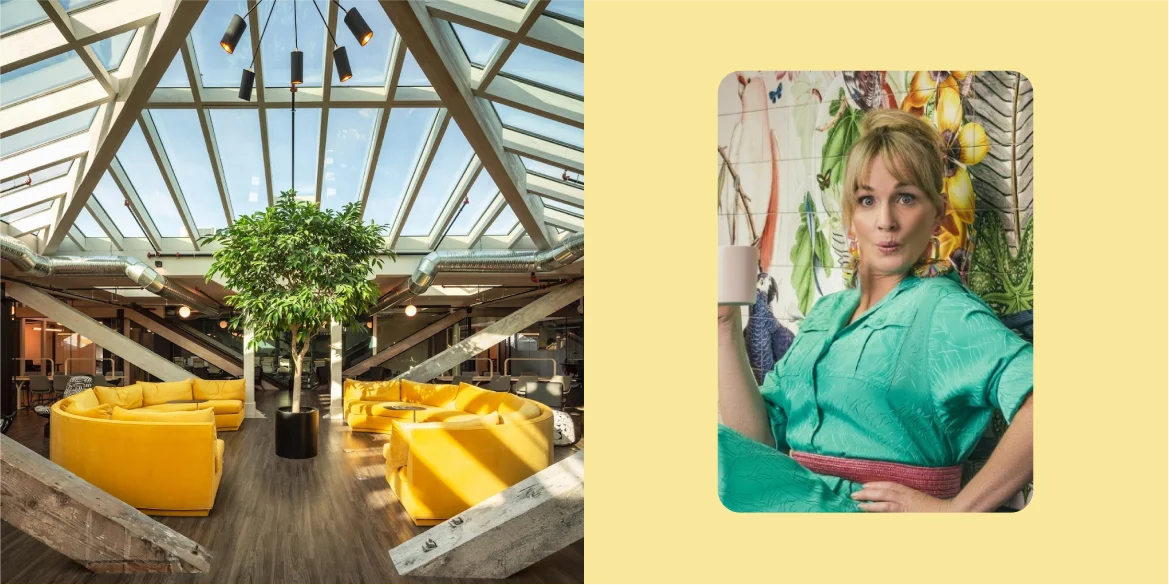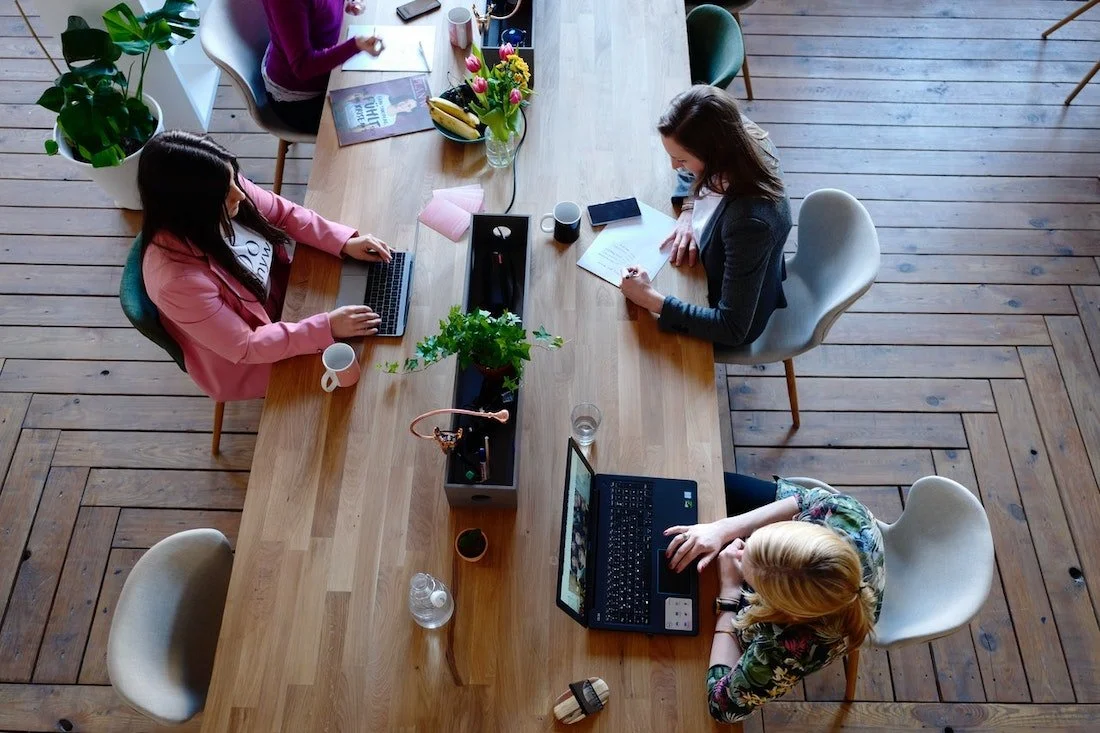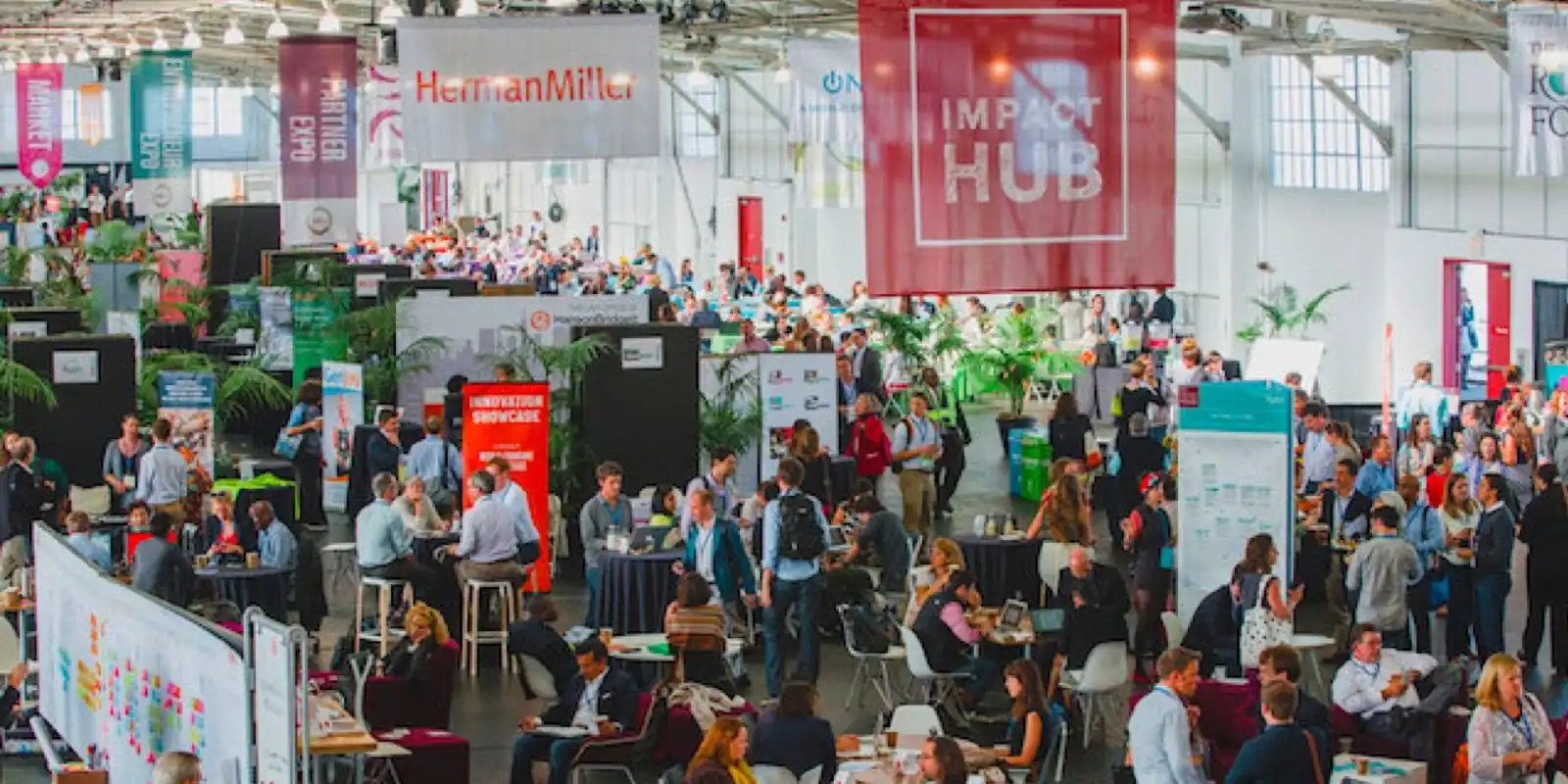
Ask anyone in the social impact sector, “Where can I meet and work alongside like-minded professionals?”, and they will tell you to check out Impact Hub. With more than 75 locations, Impact Hub has brought together social and environmental change-makers from all corners of the globe.
Recently having celebrated their five-year anniversary, MissionHUB is a network of Impact Hub locations, including San Francisco, Berkeley, New York, DC and Philadelphia, as well, home to the largest social impact conference, SOCAP, which attracts more than 10,000 entrepreneurs, investors and sector leaders to the Bay Area every year.
We had a chat with CEO, Eryc Branham.
You describe MissionHUB as “a school for social innovators.” Tell us more about what that means.
MissionHUB helps social innovators build sustainable businesses that drive long-term social and environmental change – from social entrepreneurs to non-profits to foundations to impact investors.
We believe the best way to incubate social innovation is to physically bring people together – to work, commune, share best practices, access resources that they need to grow and create impact, attend events and classes, etc.
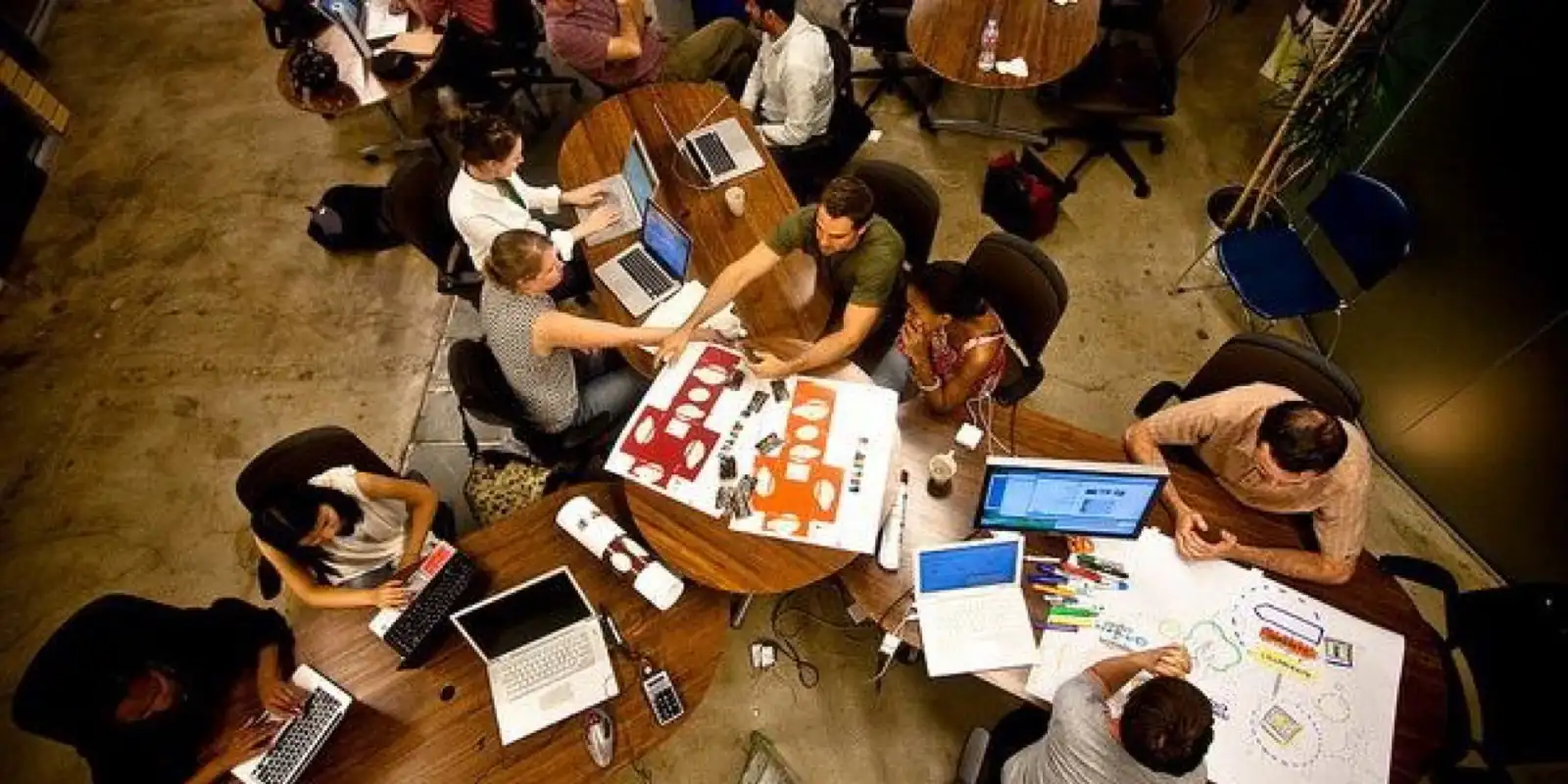
So the foundation of our business is a network of 5 Impact Hub coworking & event spaces across the US, in San Francisco, Berkeley, New York City, Philadelphia, and Washington, DC. These hubs are a part of the global Impact Hub network of more than 75 locations and 11,000 members.
And since 2008, our Social Capital Markets (SOCAP Conference), has been dedicated to accelerating a new global market at the intersection of money & meaning. Our annual flagship event in San Francisco is the largest conference for impact investors and social entrepreneurs.
Ultimately, we are tying together the educational content from the SOCAP conference and our partners to deliver high-quality programming specially for social innovators on each of our 5 campuses.
What are three things that make your coworking communities unique?
Community, Content, and Care!
Our members are all social innovators, so there’s a great sense of Community around being “mission oriented” and wanting to make the world a better place.
We surround our members with focused Content to help them build “sustainable impact”, whether those are more business-related resources for a social enterprise (for-profit) or resources for a non-profit.
All of that comes down to the Care that we bring to our members – we are in the hospitality business, not a real estate business. So, our staff spends a lot of time ensuring that we really know what our members need, far beyond which type of tea to offer in the kitchen, rather focused on the resources that they need to be successful.
What is the biggest advantage of having a global network, and what can other operators learn from your business about building a global brand of coworking communities?
As part of the global Impact Hub network, we offer opportunities for our members to connect with changemakers in far corners of the world.
With more than 75 campuses, from Amsterdam to Accra, and Singapore to San Francisco, Impact Hub members exploring internationally have an instant connection to people on the other side of the world.
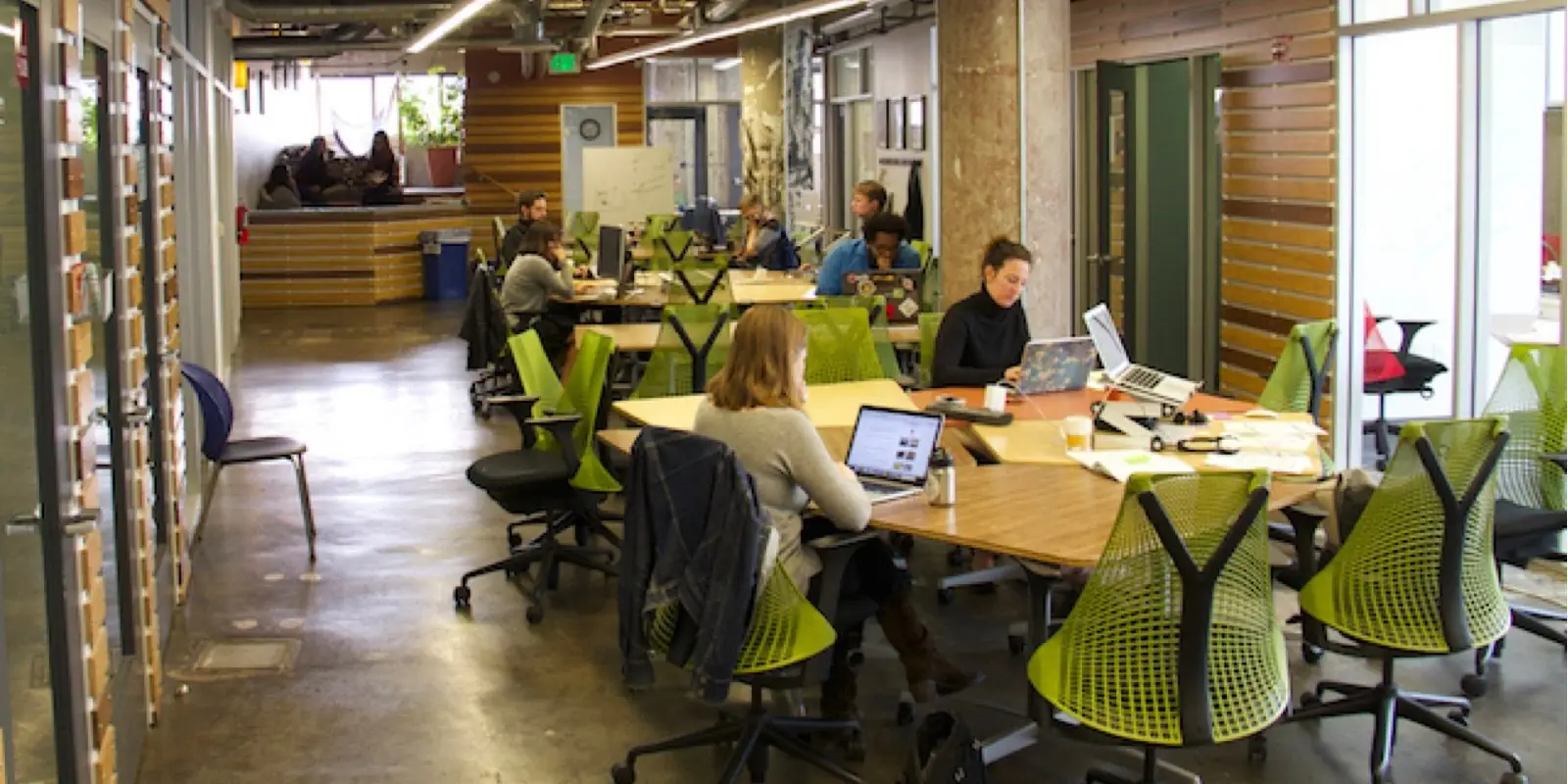
Having an Impact Hub membership is like having family everywhere. People welcome members as their own, offering access to contacts and resources to evolve and grow. Impact Hub members around the world share a common connection because of our values-based work, forwarding social and environmental change.
What’s your operational mantra when it comes to managing your spaces?
MissionHUB is a B Corp, which means that we have a duty to create social and environmental impact as well as financial returns to our investors.
One way that we create impact is by supporting the social innovators who are members of our Impact Hub campuses and attend SOCAP.

But we are trying to create more direct impact as well, specifically through a sustainability initiative that we kicked off last spring. We’re looking across the end-to-end spectrum of our business to see how we can make better choices on things like sustainable supplies in our kitchens to grey water reclamation to solar power. So we create environmental impact through the operating of our space, which is the values-based environment that our members want to work in as well. And we’re doing more from a community engagement perspective, to try and address the real social challenges that are a part of the daily life in the downtown areas in which our 5 campuses are located.
What are your thoughts on the future of work?
There is no doubt that “coworking” in all its forms is the way that most people will work in the future, especially in dense urban areas, from freelancers to small businesses to big businesses that are growing and can’t easily predict their long-term real estate needs.
And I see the growth of two types of coworking providers: horizontal providers who are providing generic flexible real estate solutions and vertical providers who are building specific communities and see their job as more of a service provider. MissionHUB is the latter – we are a service provider to social innovators and we bring a combination of coworking, resources, and education to our members.
Our next phase is to get even more prescriptive and build centres of expertise in each of our campuses, where a social innovator will find the world’s best resources in a particular subject matter. We want to welcome all social innovators to any campus, but bring very special resources to those innovators working in the area of:
- “Sustainable Cities” at Impact Hub San Francisco
- “Sustainable Food/Ag” at Impact Hub Berkeley
- “Financial Inclusion” at Impact Hub NYC
- “Impact Investing” at Impact Hub Philadelphia
- “Civic Innovation” at Impact Hub DC
Those themes also align with subject areas that we’re exploring at our annual SOCAP conference with thought-leaders from around the world, so that the next generation of ideas can be developed at SOCAP and then “go to work” back in our Impact Hub campuses.

